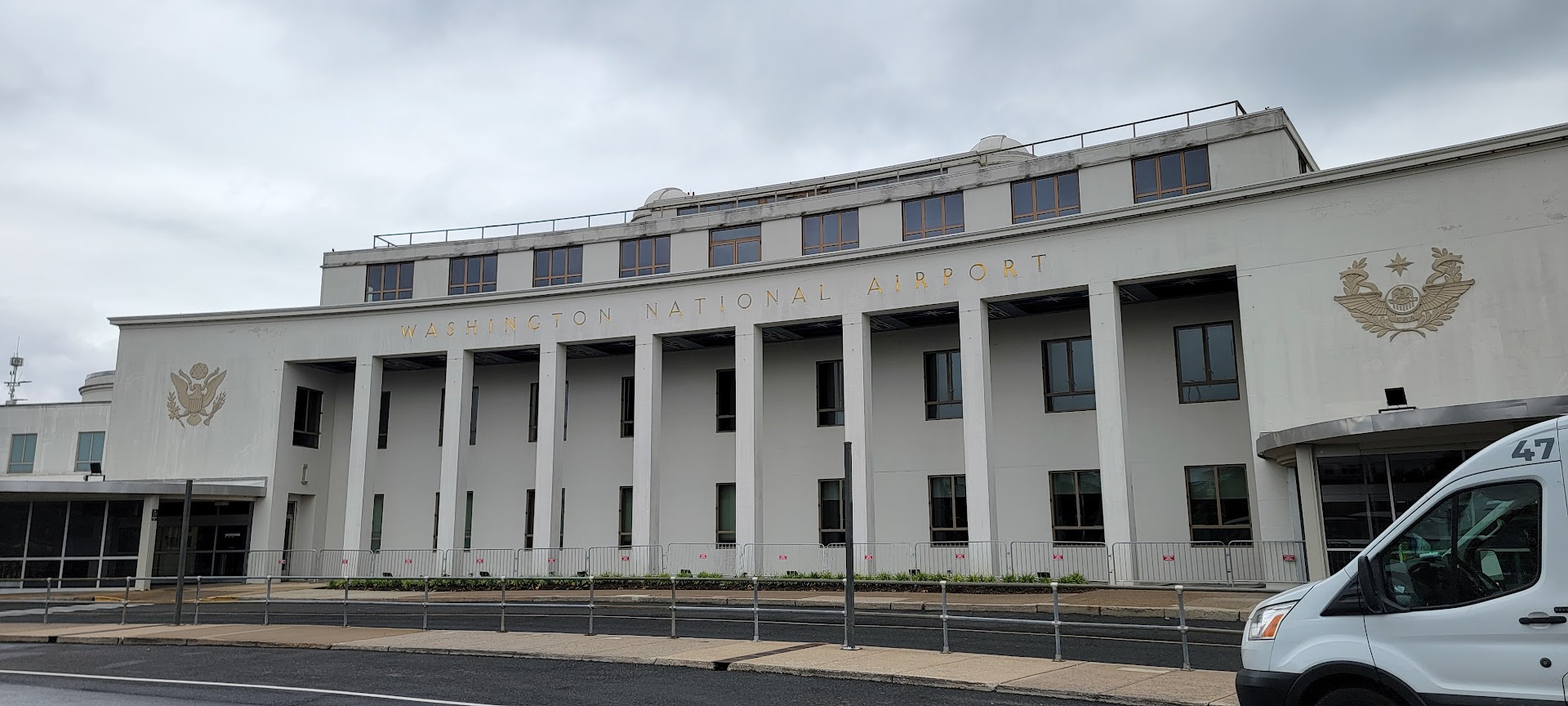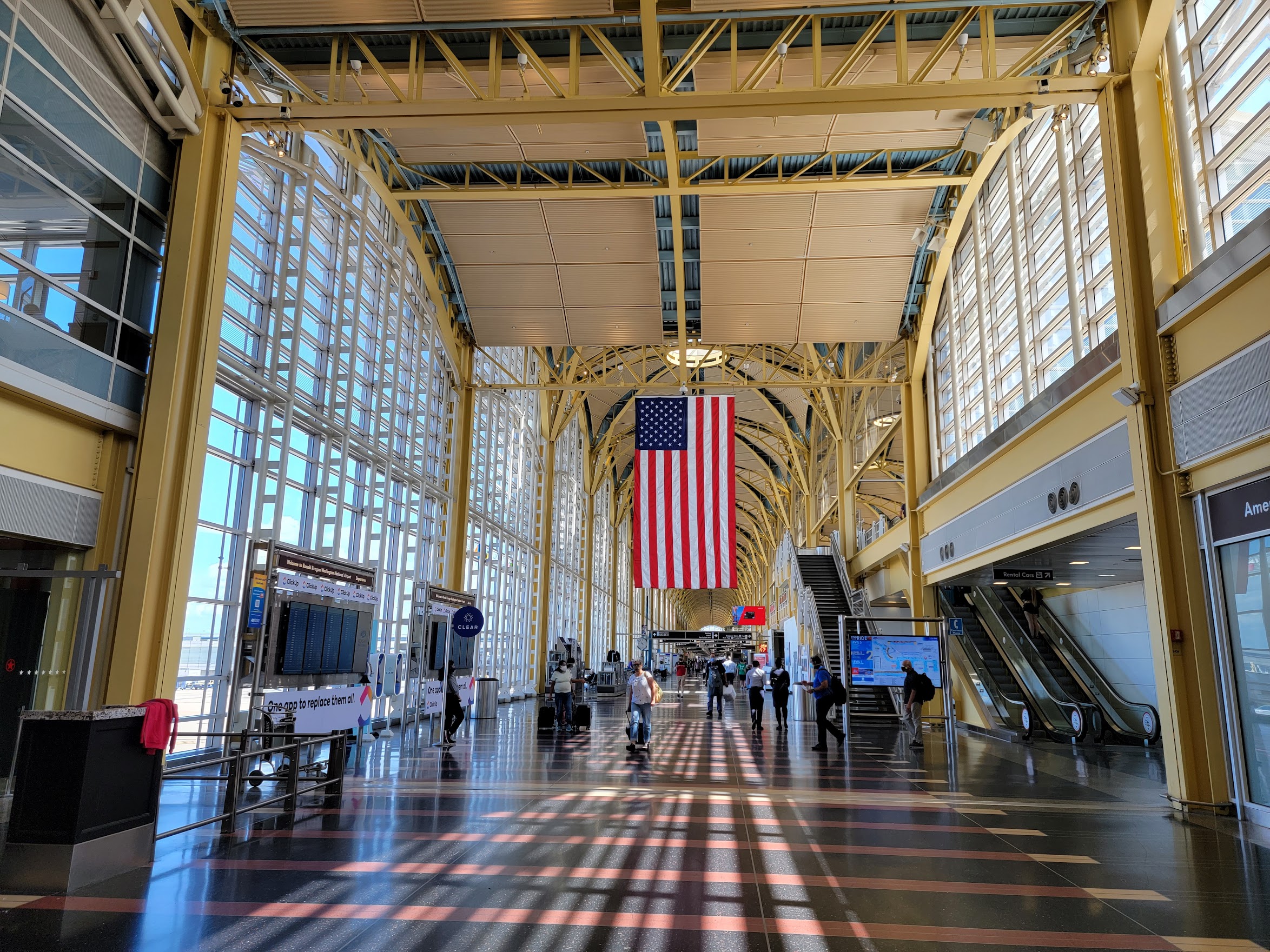Washington’s Reagan National airport has a ‘perimeter rule’. No flights are permitted beyond 1,250 miles, except for a limited number that have been proscribed by law and handed out by the Department of Transportation.

The recent FAA Reauthorization Bill contains 5 new roundtrips that DOT can assign ‘beyond the perimeter’ and airlines are jockeying for those. What’s odd, though is that Spirit Airlines is asking for National Airport to San Jose, the new slots are limited to incumbent airlines at the airport, and Spirit doesn’t serve National airport.
Spirit is pursuing the one round-trip for limited incumbents authorized at DCA through the passage of the Federal Aviation Administration (FAA) Reauthorization Act of 2024.
If approved, the new route will provide travelers with the only nonstop, low-fare service between Silicon Valley and the nation’s capital. The service would also boost competition by introducing a low-fare competitor and offering Bay Area travelers more choices to reach the Washington, D.C. area. San José is one of the largest cities in the nation without nonstop service to Washington, D.C., and this new flight from SJC would offer a closer, more convenient option for millions of residents.

The FAA Reauthorization Bill is clear that Spirit Airlines is not eligible for slots? The bill’s language says that the Department of Transportation shall award:
- 4 roundtrips to ‘incumbent’ airlines that are not ‘limited incumbents’, in other words the major carriers at the airport (American, Delta, United, Southwest, JetBlue).
- 1 roundtrip to a ‘limited incumbent’ which appears to only mean Alaska Airlines
First, here’s the legislative language divvying up the 5 roundtrips (10 slots) between the airport’s major players and a single minor one with none permitted for new entrants at the airport.
‘(2) NON-LIMITED INCUMBENTS.—Of the slot exemptions made available under paragraph (1), the Secretary shall make 8 available to incumbent air carriers qualifying for status as a non-limited incumbent carrier at Ronald Reagan Washington National Airport as of the date of enactment of the FAA Reauthorization Act of 2024.
‘(3) LIMITED INCUMBENTS.—Of the slot exemptions made available under paragraph (1), the Secretary shall make 2 available to incumbent air carriers qualifying for status as a limited incumbent carrier at Ronald Reagan Washington National Airport as of the date of enactment of the FAA Reauthorization Act of 2024.
Here’s the most recent list of slot holders at the airport and the list of who operates the slots. Spirit Airlines does not currently serve Washington National airport. Yet they aren’t a new entrant. They are still considered a limited incumbent under the law.
14 CFR § 93.213 says that, in determining whether an airline is a limited incumbent,
[T]he carrier is considered to hold the number of slots at that airport that the carrier has, since December 16, 1985:
(i) Returned to the FAA;
(ii) Had recalled by the FAA under § 93.227(a); or
(iii) Transferred to another party other than by trade for one or more slots at the same airport.
Meanwhile a “new entrant” means “a commuter operator or air carrier which does not hold a slot at a particular airport and has never sold or given up a slot at that airport after December 16, 1985.”

Spirit Airlines does not fly to Washington National airport, yet still qualifies as a limited incumbent carrier at the airport. Between ~ 2008 and 2012 Spirit operated there to Fort Lauderdale and at one point also flew to Myrtle Beach. The fact that they used to serve the airport makes them a limited incumbent.
And that shakes up the race for slots.
- American Airlines will get San Antonio because Senator Ted Cruz is ranking member of Senate Commerce and Transportation, he championed the slots, and his priority was a San Antonio flight. The only way this assignment doesn’t happen is if another carrier petitions for San Antonio, though even there the city has entered into a partnership with American to seek the flight.
- Alaska Airlines is a limited incumbent and is seeking that slot for San Diego. DOT must choose between Spirit’s proposal and Alaska’s, it cannot choose both.
- Southwest will almost certainly get Las Vegas.
- Delta will get a slot to Seattle (probably) or Salt Lake City.
For the fifth slot, United has been indifferent to the airport (they even have some slots leased out to Delta) but could get a make-good as the primary opponent of these slots given their hub at Dulles.
However it’s a hard case to make that they should get a beyond-perimeter flight to any of their hubs.
- They and Alaska already have San Francisco
- American (2 flights), Alaska and Delta already have Los Angeles
- They have Denver and Frontier has 3 Denver flights
A flight like San Jose, which Spirit has applied for, is plausible for a beyond-perimeter slot. But does it make sense for United? Does it make sense for JetBlue?
JetBlue has the same problem as United. They already have a beyond-perimeter slot for San Juan, they are scaling back in Los Angeles and that airport already has four beyond-perimeter slots. What do they ask for?
Neither airline has a slam dunk ask. United should probably ask for a second San Francisco, JetBlue a second San Juan though if either seeks a currently-unserved West Coast market they’d probably get it.
(HT: Enilria)


Is Air Canada a limited incumbent?
(Not that they will go for a slot—or would get one if they tried.)
@ Gary — DCA to SEA by Delta seems like a sure loser financially for DL.
Didn’t Frontier have a MKE-DCA route back in the day as well. I wonder if them having that route would make them a “limited incumbent” as well.
As a someone who lives right next to SJC and travels to DC frequently I really hope this happens. Though I would have preferred it to not be an ULCC running the route. Maybe if spirit gets it, United will try to compete with an SJC-IAD route.
I mostly visit the Virginia part of the DMV area so IAD works just as well as DCA for me. SFO has directs to both but SJC is just so much easier and nicer for domestic travel and has no directs to the DMV. Somewhat like DCA, SJC really hits a sweet spot in being an airport not too big to have the chaos and crowds of a big international hub, but big enough to have decent amenities and connectivity.
Also SJC has 2 “The Club” priority pass lounges that are nail the lounge basics (mostly clean, uncrowded, not to far from most gates, nice runway view) better than any other “The club” lounges in the US that I have come across. Anyone visiting the SF Bay Area should consider SJC if they are visiting the peninsula.
The only further federal involvement with B6 should be in bankruptcy court. This airline needs to die, not be given a slot that UA will actually fly, unlike B6.
Hard to see the logic for picking SJC over SAN when there is such clear national interest logic favoring SAN.
SAN = Principal homeport of the Navy’s Pacific Fleet plus huge Marines installations at Pendelton and Miramar. Huge demand for a direct route into DCA and will have no issue filling seats.
SJC = No compelling Federal government interests here, not to mention that it’s a ULCC and that multiple carriers already have service to SFO. Pass.
According to Tim Dunn, Spirit should submit their slot request to Delta because Delta has a superior fuel advantage on their ATL to SAV route, according to 1998 DOT stats.
When the Washington Metro was built, it only served National Airport (DCA), and traffic at Washington Dulles International Airport (IAD) begin to decline. To prevent IAD from failing, the DCA perimeter rule was established in 1966. This rule restricts flights from DCA to destinations within a 1,250-mile radius, forcing longer flights to use IAD. However, as of November 15, 2022, the Metro now serves IAD as well, making the rationale for the perimeter rule obsolete.
Instead of allowing Congress to selectively grant exemptions based on political favoritism, we should eliminate the perimeter rule entirely and let passenger demand dictate which flight destinations are served. If Dulles still needs support, a reasonable compromise would be to limit DCA to domestic destinations while reserving IAD for international flights.
I know this crowd doesn’t like ULCCs, but from a regulator’s standpoint, there’s value in having lower fare price points and an ULCC will cram more seats into the plane, potentially netting more efficient use out of a limited slot.
I wouldn’t fly it, but I can see how NK might win it.
Alaska technically holds 8 additional slots that they lease to Southwest Airlines from VX’s DAL days, (iii) in the the section cited would seem to indicate to me that Alaska can count those in their number of slots held meaning they’d have a total of 20 slots and not be considered a limited incumbent.
@seatac315 – the number of slots to count as a limited incumbent was increased
A SJC to DCA non-stop route would bring down fares from $400 currently (1-stop) to low $200 with Spirit (non-stop). Spirit has been growing in SJC rapidly. SJC is a high fare airport at an average fare of $317.
SJC, SFO and OAK are all fairly close to each other. A person looking for the lowest cost fares already has options.